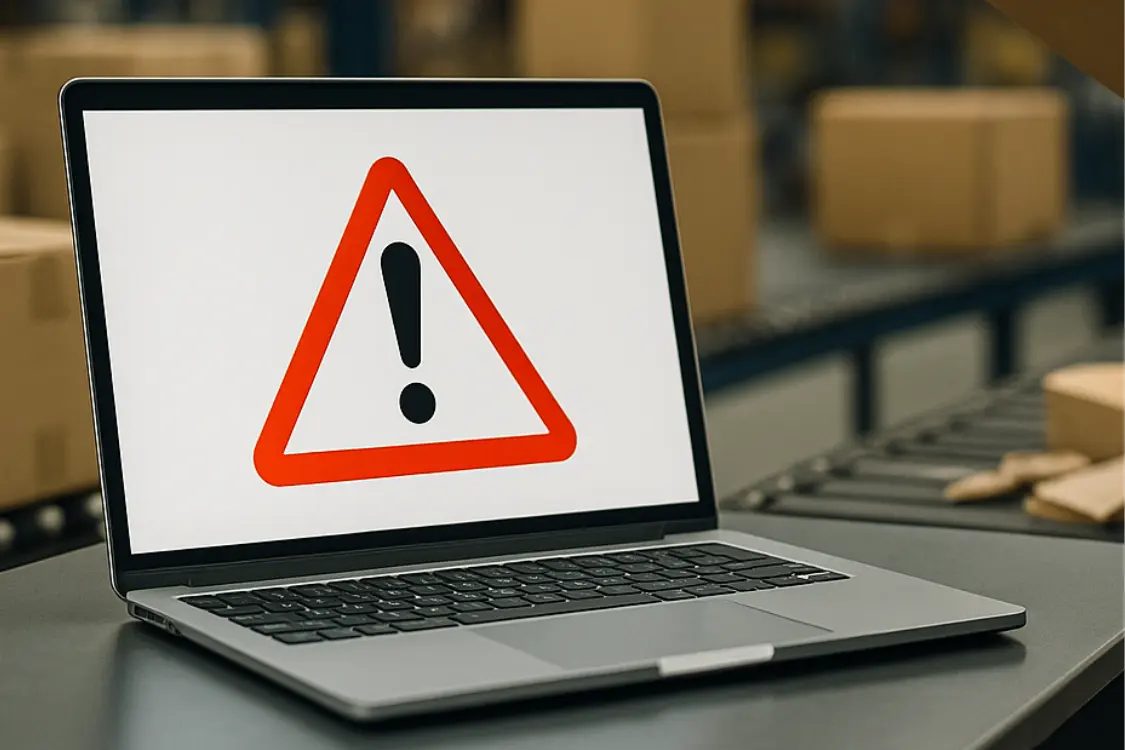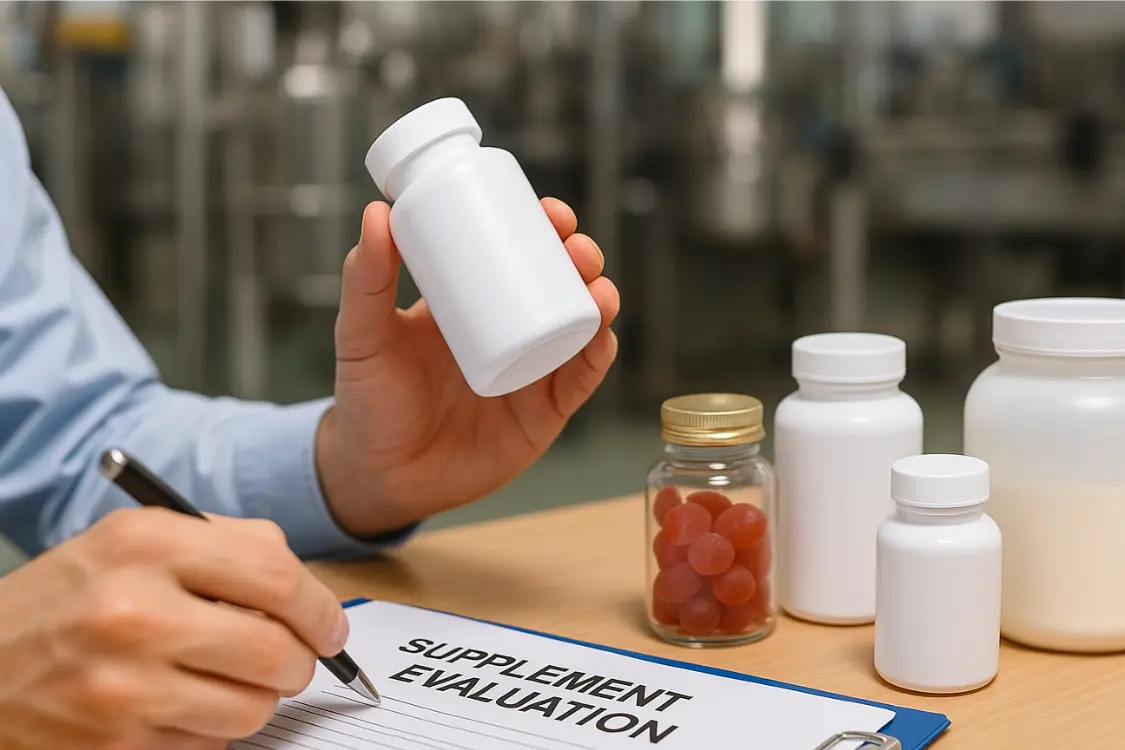How confident are you that your supplement manufacturer is still meeting your standards? In the dietary supplement industry, a supplier that looked reliable last year may not be operating the same way today. Ingredient sourcing can change without notice, and even minor adjustments in the manufacturing process can affect product quality. A once-dependable supplement manufacturer might also lose certifications, face regulatory issues, or fall behind on testing standards without informing clients. That’s why an ongoing supplement supplier evaluation is essential.
These shifts often happen quietly but can have major consequences for your business. Poor quality control and lack of transparency can damage your brand’s reputation and expose your business to regulatory action. Relying solely on initial vetting is not enough. To ensure compliance with FDA (Food and Drug Administration) regulations, maintain consistent product quality, and avoid market withdrawals or safety alerts, brands must implement ongoing evaluation as part of their long-term strategy.
The Risks of Neglecting Ongoing Supplier Evaluation
Failing to regularly evaluate your supplement manufacturers can lead to serious business setbacks. Even a well-established supplier can start cutting corners, fall behind on regulations, or disrupt your entire supply chain.
Regular oversight protects your business from risks that aren’t always obvious during initial onboarding. When issues go unchecked, they often grow quietly until product quality drops or legal action hits.
Quality Degradation Over Time
In the fast-moving supplement market, quality can slip without warning. A supplement manufacturer that once followed current good manufacturing practices (CGMPs) might change ingredient sources, overlook testing, or alter its manufacturing operations without telling you.
Without consistent supplement supplier evaluation, these shifts can lead to potential contaminants, inaccurate labeling, or inconsistencies in dietary ingredients. Even minor quality issues can trigger compliance warnings, damage your product reputation, and result in costly recalls.
Regulatory Non-Compliance
Dietary supplement manufacturers are required to comply with FDA regulations and the Federal Food, Drug, and Cosmetic Act. If your supplier stops following good manufacturing practices or fails a regulatory audit, your brand could face serious consequences.
While each dietary supplement manufacturer is primarily responsible for its own compliance, you are ultimately responsible for ensuring the products your brand sells meet all regulatory requirements. Without routine checks, like reviewing certifications, analyzing suppliers’ COAs (Certificates of Analysis), and confirming compliance through tools like the Foreign Supplier Verification Program, you’re exposed to risks that could lead to warning letters or federal law violations.
Supply Chain Disruptions
A single weak link in your supply chain can halt production, delay launches, or cause stockouts. Supplement companies that don’t regularly evaluate their suppliers might miss early warning signs like financial instability, unreported ingredient shortages, or expired certifications.
Without a strong supplier qualification process, your business remains vulnerable. A missed shipment or unapproved ingredient substitution can create ripple effects, damaging your timeline, budget, and customer trust.

Key Components of Effective Supplier Evaluation
An effective supplier evaluation program relies on clear metrics, verified compliance, and reliable risk monitoring. It goes beyond basic check-ins. It’s about protecting your product quality and business stability.
When evaluating supplement manufacturers, focus on measurable performance, adherence to regulations, and financial indicators that show long-term reliability.
Performance Metrics
Tracking performance is a key part of supplement supplier evaluation. It helps you monitor how well your dietary supplement manufacturers are meeting expectations and where risks may be building up across your supply chain.
Use these performance metrics to evaluate supplement manufacturers consistently:
- On-time delivery rates
Missed deadlines can signal deeper issues within a supplier’s manufacturing operations or ingredient sourcing. - Product defect rates
A rise in defects may point to lapses in quality control or failure to follow good manufacturing practices. - Customer complaint frequency
Frequent complaints about your dietary supplement products can reflect problems with labeling, packaging, or formulation.
Compliance Checks
Regulatory compliance is non-negotiable in the dietary supplement industry. To ensure your supplement manufacturer meets all FDA (Food and Drug Administration) regulations and current good manufacturing practices, include these compliance checks in your supplier qualification program:
- Adherence to good manufacturing practices (GMP)
Confirm that your supplement manufacturers consistently follow GMP standards throughout their manufacturing process. - Certification validity
Check that all required certifications, including cGMP and other third-party verifications, are current and not expired. - Regulatory audit outcomes
Review recent audits for any violations, warning letters, or gaps in compliance that could pose a risk to your dietary supplement products.
Financial Stability Assessments
Financial health is often overlooked during supplement supplier evaluation, but it directly impacts your supplier’s ability to maintain quality and consistency. A financially unstable supplement manufacturer may struggle with ingredient sourcing, delay testing, or fail to meet regulatory requirements. All of these issues can disrupt your business.
Use the following steps to assess a supplier’s financial stability:
- Analyze financial history
Look for patterns in revenue, debt, and payment behavior to evaluate long-term viability. - Review industry credit scores
A supplier with low or declining credit scores may pose a risk to your supply chain and production timelines. - Check for public signs of instability
News of layoffs, facility closures, or legal issues can be early warnings of deeper problems affecting quality control or manufacturing operations.

Implementing a Supplier Evaluation Program
To keep your business protected, your supplier evaluation program needs structure. It should be detailed, consistent, and easy to act on.
Successful supplement companies build this into their operational model, using tools and processes to evaluate, review, and maintain supplier compliance over time.
Establish Clear Evaluation Criteria
Start with specific, measurable criteria. Define what qualifies a supplement manufacturer to remain part of your supply chain. This can include production capacity, cGMP certifications, product testing protocols, and documentation like COAs and ingredient sourcing details.
Align your evaluation criteria with FDA regulations and your own quality standards. Having this in place keeps your expectations clear and defensible.
Schedule Regular Assessments
A supplier’s qualified status isn’t permanent. Set a review schedule that reflects the level of risk, product complexity, or changes in manufacturing operations.
For higher-risk dietary supplement products, evaluations may be needed quarterly. Others may only require annual reviews. The goal is to catch issues early, before they reach the consumer.
Utilize Evaluation Tools
Use digital tools to simplify tracking and reduce manual errors. Supplement companies often rely on supplier qualification programs, audit checklists, or integrated platforms to manage documentation and deadlines.
Even a basic scoring system can help you compare suppliers across categories like quality control, compliance, delivery, and communication. The right tools allow you to confirm standards are being met without overloading your internal team.

Leveraging Evaluation Results for Business Growth
Supplement supplier evaluation isn’t just about preventing problems. It also creates opportunities to improve products, refine processes, and build stronger supplier partnerships.
When handled proactively, evaluations can help you stay competitive, scale faster, and protect your brand in a growing supplement market.
Identifying Improvement Opportunities
Routine analysis can uncover trends that lead to better products. If one supplier consistently underperforms on delivery or testing, work with them to improve or consider other supplement manufacturers who better match your goals.
These reviews can also surface gaps in ingredient sourcing, labeling, or risk management, giving your team the insight to act before quality drops.
Making Informed Decisions
Your supplier data should inform real business moves. If a manufacturer fails to comply with your criteria or ignores multiple requests for updated certifications, it might be time to renegotiate or transition.
Implementing a robust supplier qualification process helps you make those calls with confidence. Instead of reacting to issues, you’re choosing partners who align with your growth and compliance strategy.
Enhancing Brand Reputation
Every customer touchpoint reflects your supply chain. When your products are consistently high quality, properly labeled, and safe, consumers notice, and trust grows.
Maintaining high evaluation standards protects your brand’s reputation. It shows that your company follows good manufacturing practices and takes regulatory compliance seriously, which strengthens your position in the dietary supplement industry.

Sustaining Success Through Continuous Supplier Evaluation
Ongoing supplement supplier evaluation is one of the most effective ways to protect your brand, maintain product quality, and ensure compliance with FDA (Food and Drug Administration) regulations. Regular check-ins help you catch issues early and confirm that your dietary supplement manufacturers are still following current good manufacturing practices.
This process also strengthens your supply chain by keeping quality control and compliance in check as your business grows. Companies that take supplier evaluations seriously are better positioned to avoid warning letters, mitigate business risk, and meet customer expectations consistently.
For entrepreneurs building or scaling a nutrition brand, a strong supplier qualification program is not just helpful. It is a critical part of staying competitive in the dietary supplement industry.
Frequently Asked Questions
Why is ongoing supplier evaluation important for nutrition brands?
It helps ensure product quality, regulatory compliance, and supplier reliability as your business grows.
What are the key metrics to assess in supplier evaluations?
Track on-time delivery, product defect rates, complaint frequency, certifications, and audit results.
How often should I evaluate my supplement manufacturers?
Most brands benefit from quarterly or annual evaluations, depending on product risk and regulatory requirements.
What tools can assist in the supplier evaluation process?
Supplier qualification programs, audit checklists, and compliance tracking software streamline evaluations.
How can supplier evaluations impact my brand’s reputation?
Consistent reviews help prevent quality issues and show your customers that your company is committed to quality and regulatory compliance.
References
- U.S. Food and Drug Administration. (n.d.). Current good manufacturing practices (CGMPs) for food and dietary supplements. https://www.fda.gov/food/guidance-regulation-food-and-dietary-supplements/current-good-manufacturing-practices-cgmps-food-and-dietary-supplements
- U.S. Food and Drug Administration. (n.d.). Federal Food, Drug, and Cosmetic Act (FD&C Act). https://www.fda.gov/regulatory-information/laws-enforced-fda/federal-food-drug-and-cosmetic-act-fdc-act
- U.S. Food and Drug Administration. (n.d.). Final rule on foreign supplier verification programs (FSVP) at-a-glance. https://www.fda.gov/food/food-safety-modernization-act-fsma/final-rule-foreign-supplier-verification-programs-fsvp-glance
- U.S. Food and Drug Administration. (n.d.). Warning letters. https://www.fda.gov/inspections-compliance-enforcement-and-criminal-investigations/compliance-actions-and-activities/warning-letters



